Sep
4
2010
or Forbidden Mixtures – 2

NOTE: THIS POST HAS BEEN REMIXED AND INCLUDED IN GOD’S KITCHEN.
You must be logged in to see the rest of this post.
Join now for a year for $15!
Many theologians will tell you that the Old Testament Scriptures have little to say about resurrection. Yet, typologically, they scream about it constantly if we have eyes to see. Many modern conservatives don’t understand the nature of revelation. God paints the same picture of death and resurrection over and over again at both personal and national levels and all these gents do is record how many pixels are in each image.
For a visual blow-by-blow account of this death and resurrection process, get a copy of Bible Matrix and read it twice. Here, I want to concentrate on the significance of Melchizedek in the Last Supper.
Continue reading
2 comments | tags: Abraham, Communion, Ezekiel, Ezekiel's Temple, Genesis, Joseph, Resurrection | posted in Bible Matrix, Biblical Theology, The Last Days, The Restoration Era
Jul
5
2010
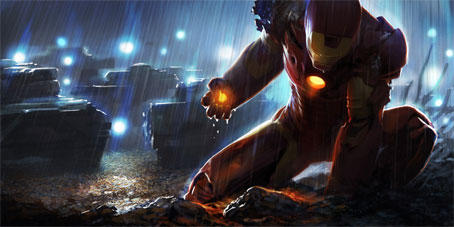
Building the Iron Saint
Every plunge brings a tougher skin and a softer heart.
Jesus calls us deeper, so Satan manufactures false depths. There are the deep things of God and the deep things of Satan (Revelation 2:24). Doug Wilson points out that the deep things of God are depths of holiness, not depths of mystical knowledge:
Continue reading
1 comment | tags: Abimelech, Add new tag, Bible Matrix, Jacob, Joseph, Maturity, Oswald Chambers | posted in Biblical Theology, Christian Life, Quotes
Apr
27
2010
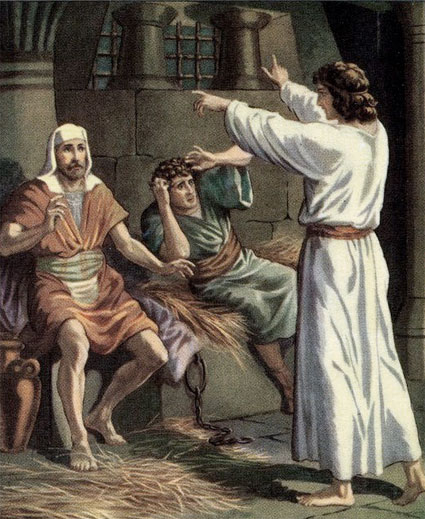
Now it came to pass on the third day, Pharaoh’s birthday, that he made a feast for all his servants; and he lifted up the head of the chief butler and of the chief baker among his servants. Then he restored the chief butler to his butlership again, and he placed the cup in Pharaoh’s hand. But he hanged the chief baker, as Joseph had interpreted to them. Yet the chief butler did not remember Joseph, but forgot him. (Genesis 40:20-23)
Joseph’s life has three “matrix” cycles: as a prophet betrayed by his brothers [1], a priest tempted to “harlotry”, and finally as a conquering king.
Continue reading
2 comments | tags: Bible Matrix, Genesis, Joseph, Passover, Pharaoh | posted in Biblical Theology
Mar
3
2010
Band of Brothers – 1
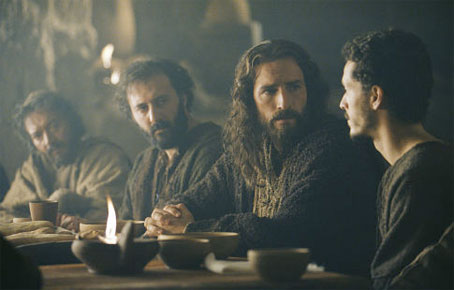
It’s a temptation to water down the Bible to make it palatable for “normal” people (let alone watering it down for ourselves!). Problem is, before we know it, what we are teaching bears little resemblance to the actual Bible. The Bible has odd corners where we think it should be smooth, and it says nothing about many things we moderns deem crucial. So let the hungry eat cake.
Many youth leaders, and even pastors, present the Almighty as being desperate for our company. Although He is not needy, what He desires is more than relationship. He wants “friends,” but His definition of this word is not ours. Even if we don’t go down the track of using the actual phrase “heavenly buddy” in our teaching, we are still further off the biblical mark concerning friendship with God than we might have thought possible.
Continue reading
Comments Off | tags: Abraham, Compromise, David, Joseph, Masculinity, Saul | posted in Biblical Theology, Christian Life
Feb
5
2010
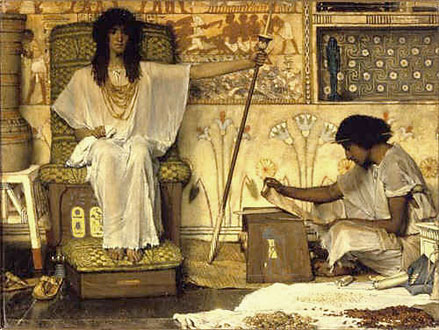
The Pharisees’ call for miracles from Jesus was a sign of immaturity. As the story of the patriarchs demonstrates, the growing maturity of the people of God is illustrated in less of a need for proofs. The Word is enough. Miracles are occurring around the world in places where the gospel is new and faith needs assurance. In the West, genuine miracles of this nature seldom occur. Is it due to a lack of faith or a call to greater faith? We have had the Scriptures forever, and the childish desire for (and manufacturing of) miracles, betrays a reversion to childhood.
Continue reading
2 comments | tags: Abraham, Genesis, Jacob, James Jordan, Joseph, Maturity, Spiritual Growth | posted in Biblical Theology, Christian Life, Quotes
Nov
26
2009
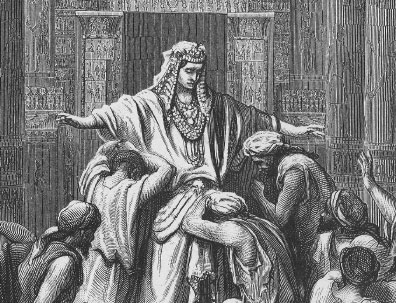
Warren Gage/Christopher Barber and then James Jordan on Joseph’s wisdom:
“How strange Joseph’s behaviour toward his brothers appears to a modern reader! He recognises his brothers immediately but maintains his Egyptian disguise. He speaks harshly to them and then only through an interpreter. He charges them with spying — a capital crime for which he can sentence them to death. He takes one brother as a hostage. He returns their silver as they go home for the first time, and then he sets the brothers up in order to accuse them of stealing his silver cup on their second return trip, at which point he has them arrested. In short, he terrifies them.
What does this all mean? Is Joseph seeking revenge? Clearly that is not the case, for he so loves them he can hardly restrain himself fom revealing his identity — and his forgiveness — to them. Surely he is not vengeful. Why does he act this way? And why does the text go to such lengths to describe all of this?
Continue reading
Comments Off | tags: Dominion Theology, Forgiveness, Genesis, Jacob, James Jordan, Joseph, Warren Gage, Wisdom | posted in Biblical Theology, Christian Life, Quotes
Aug
14
2009
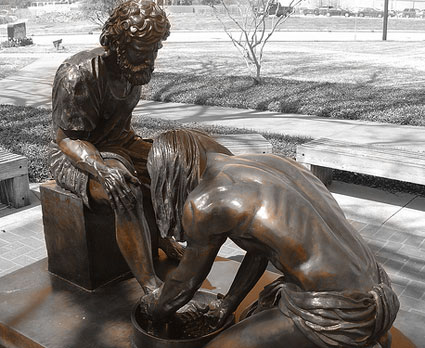
or Filling Up That Which is Lacking
After reading about the Bible’s use of robes as symbols of office (see The Dominion Trap by James B. Jordan), Tim Mitchell commented:
In Bible study we’ve been looking at John, so a few weeks ago was John 13. My Bible translated v.4-5 as “So he got up from the table, took off his robe, wrapped a towel around his waist, and poured water into a basin. Then he began to wash the disciples’ feel, drying them with the towel he had around him.”
So that recalled for me the couple of pages on robe imagery, and it seems to foreshadow what Jesus will do later on very well: He is willing to take off his authority and righteousness, and take on the dirt of our sin.
But then I got a bit unsure, since Jesus then goes on to say “you ought to wash each others’ feet” in v.14 and “Do as I have done to you” in v.15. So if the symbolism applies, how are we also supposed to take other peoples’ sin on us as Jesus did?
Firstly, what a great question. Many New Testament passages become so familiar that we often lose the ability to really think about their ramifications.
The structure of the Last Supper puts this action of Jesus at Atonement, the Laver (Day 6). Jesus is liturgically pre-enacting His role as High Priest. The Adam removed his glorious robes and wore linen for the Day of Covering. Jesus left this in the tomb with our sin on it. But that is not all the High Priest did. He approached the Most Holy twice.
Continue reading
Comments Off | tags: AD70, Against Hyperpreterism, Ahasuerus, Atonement, Daniel, Esther, Hebrews, High Priest, Holy Place, Joseph, Last Supper, Liturgy, Totus Christus | posted in Biblical Theology, Christian Life, Totus Christus
Jul
22
2009
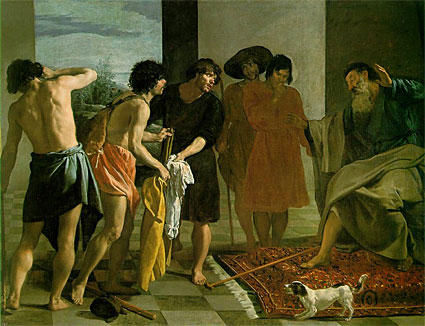
The first ‘cycle’ in the Joseph narrative wasn’t covered in Totus Christus. I have included it in Bible Matrix, and it contains some wonders.
Firstly, Joseph’s first dream (the bowing sheaves) is placed at Firstfruits – Day 3. His second dream (sun moon and stars) is at Pentecost – Day 4.
Secondly, Joseph receives his robe from Jacob at Passover (covering). It symbolises the firmament (Day 2). And his brothers cover it with goat’s blood at Atonement (covering). It symbolises the substitutionary animals and mediatory Man (Day 6). The giving and taking of the robe match chiastically.
Of course, these Scriptures predate the feasts in Leviticus 23.
Comments Off | tags: Atonement, Bible Matrix, Chiasm, Feasts, Firstfruits, Jacob, Joseph, Systematic typology, Veil | posted in Biblical Theology
Jun
20
2009
 or Systematic and Biblical Theologies
or Systematic and Biblical Theologies
More on typology. A helpful picture.
Tim Challies summarises Gage and Barber’s approach in their study guide on Genesis 37-50:
“I have learned to expect to be underwhelmed with study guides. Sadly, it was with this expectation that I began to read The Story of Joseph and Judah, a guide written by Warren Gage, Associate Professor of Old Testament at Knox Theological Seminary and Christopher Barber, a lawyer who is also a graduate of Knox Theological Seminary. I am glad to say that this guide, which promises to provide a ‘fresh look at Genesis 37-50,’ does just that and does it very well.
Continue reading
Comments Off | tags: Joseph, Judah, Tim Challies, Typology, Warren Gage | posted in Biblical Theology, Quotes
Jun
15
2009
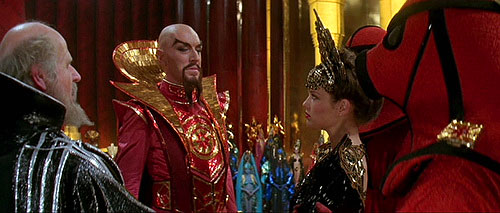
One major difference between Jordan and other preterists is his identification of Paul’s “man of sin.” Jordan is correct in naming the Herods rather than Nero because he understands biblical typology better.
Continue reading
2 comments | tags: Belshazzar, cherubim, Daniel, Esther, Film, Herod, James, James Jordan, Joseph, Mordecai, Nero | posted in Biblical Theology, The Last Days, The Restoration Era



































